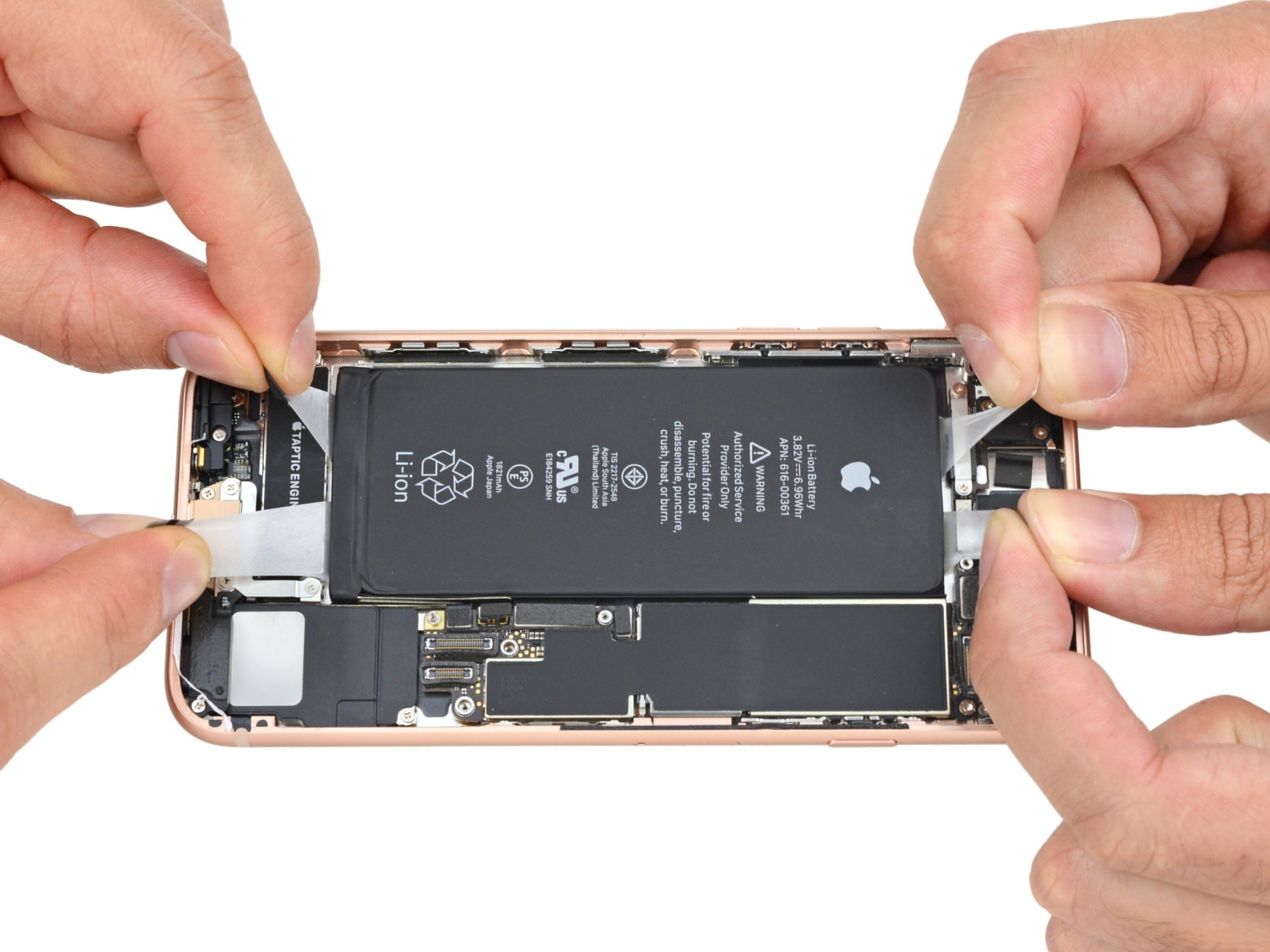Apple says iPhone is too complicated to allow self-repair

Two people are trying to peel off the battery in the new iPhone 8 (from the iFixit review )
At the TechCrunch Disrupt conference in San Francisco on September 19, 2017, Apple's vice president for environmental and social initiatives, Lisa Jackson, made the most complete statement regarding Apple's position on the issue of self-repair of proprietary technology. This issue has been discussed for a long time, because Apple is known for trying to complicate the repair of its equipment and pursues independent repairmen .
“I don't think maintainability means durability.” I often say: if you repair, repair seems to be the answer. But in fact, you need to design [devices] for the life cycle. And Apple’s [devices] are designed for reliability for some time (Apple has been designed for some time around durability), with the idea that we can produce the latest and greatest product, and your old product still works and has value, ” - said Lisa Jackson. Her words can be understood as follows: Apple technology has some planned service life (planned obsolescence), but this period is longer than the interval between the release of two consecutive models in the series.
“Our first thought is this:“ You shouldn’t have to repair it ”. If you are repairing, then we want the repair to be at a fair price and affordable, ”added Lisa. - If you think about these very complex products and say that the answer to all our problems is that you must have someone who repairs and has access to parts, does not address the whole problem (To think about these very complex products "). Lisa Jackson's last thought is quite difficult to understand. But if you try to explain it with simple words, you can say this: Apple technology is very complicated, and only Apple itself should be engaged in repairs, since only it has access to all components. And only she must set the price for repairs (“repairs for a fair price”). And this is despite the fact that the replacement of a broken camera or port in a smartphone or tablet is a matter of a few minutes, and in an independent workshop it would be worth a little money, but Apple users have to carry the device to the company center.
The company's desire to monopolize the market for repairing its own equipment has been repeatedly mentioned. Apple earns a lot from selling AppleCare + services, as well as selling branded components ($ 599 for glass to a tablet). The company maintains a closed ecosystem for the repair and maintenance of laptops, smartphones and tablets. The company seems to treat their devices as their property even after people have bought them.
In 2016, journalists got documents that show lobbying by Apple, that is, the payment of monetary rewards to officials who opposed bills on the “right to repair” . Such bills were attempted in four states - Minnesota, Nebraska, Massachusetts and New York. They propose to amend the current legislation regarding the sale of electronic equipment. The amendments simplify the repair of equipment in third-party workshops: the manufacturer is obliged to provide all the necessary documentation for such repairs in independent workshops, as well as provide independent repair shops and individuals with the same software tools and software updates needed for repairs that the manufacturer provides to its select partners. The amendments are also intended to reduce the amount of “e-waste” that is usually subjected to a dangerous and expensive shredding procedure in an industrial shredder and shipped for disposal in third world countries.
Thanks to Lisa Jackson's last speech, you can understand the main points that Apple stands on with respect to repairing equipment: only the manufacturer should carry out repairs, only he should set repair prices. Third parties should not be allowed to repair their own equipment. The reason is that only the manufacturer has access to all components, and Apple's equipment is too “difficult” for third parties to repair.
All Articles